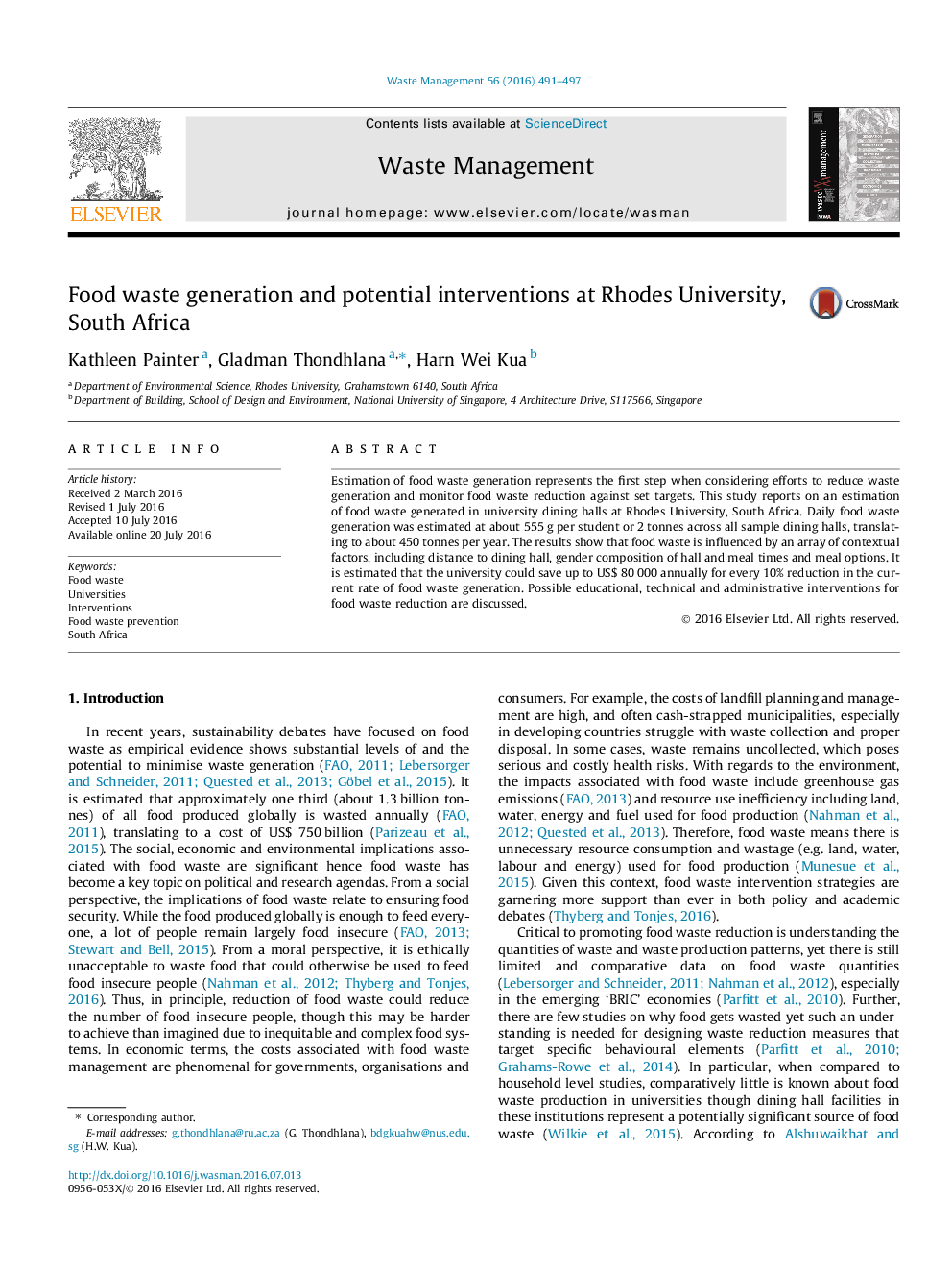| Article ID | Journal | Published Year | Pages | File Type |
|---|---|---|---|---|
| 4471159 | Waste Management | 2016 | 7 Pages |
•Food waste generation in dining halls was estimated at a South African university.•Daily food waste per students seemed higher than results elsewhere.•Distance to dining hall, gender, meal times and options influenced food waste.•Potential educational, technical and administrative food waste interventions are discussed.
Estimation of food waste generation represents the first step when considering efforts to reduce waste generation and monitor food waste reduction against set targets. This study reports on an estimation of food waste generated in university dining halls at Rhodes University, South Africa. Daily food waste generation was estimated at about 555 g per student or 2 tonnes across all sample dining halls, translating to about 450 tonnes per year. The results show that food waste is influenced by an array of contextual factors, including distance to dining hall, gender composition of hall and meal times and meal options. It is estimated that the university could save up to US$ 80 000 annually for every 10% reduction in the current rate of food waste generation. Possible educational, technical and administrative interventions for food waste reduction are discussed.
